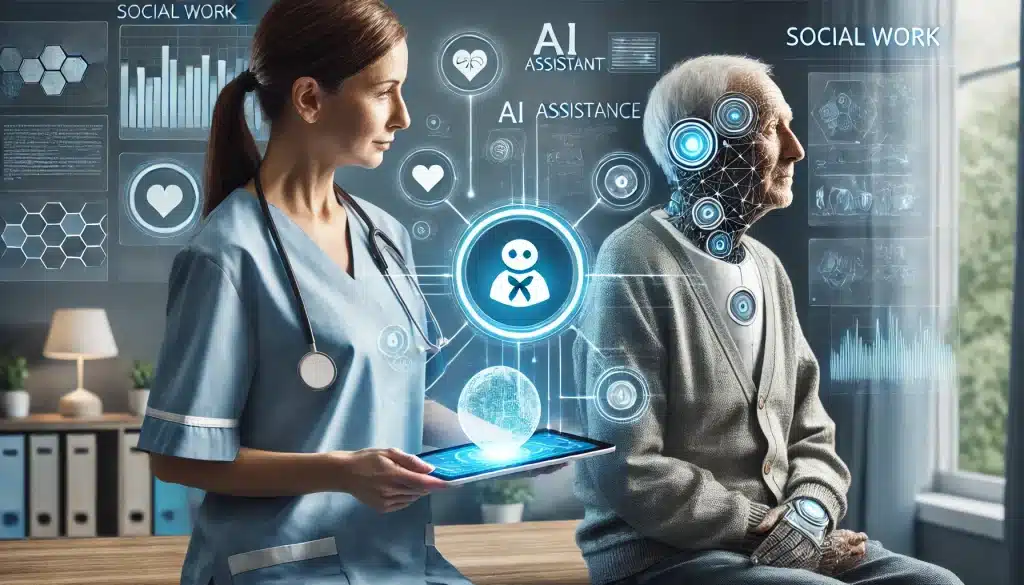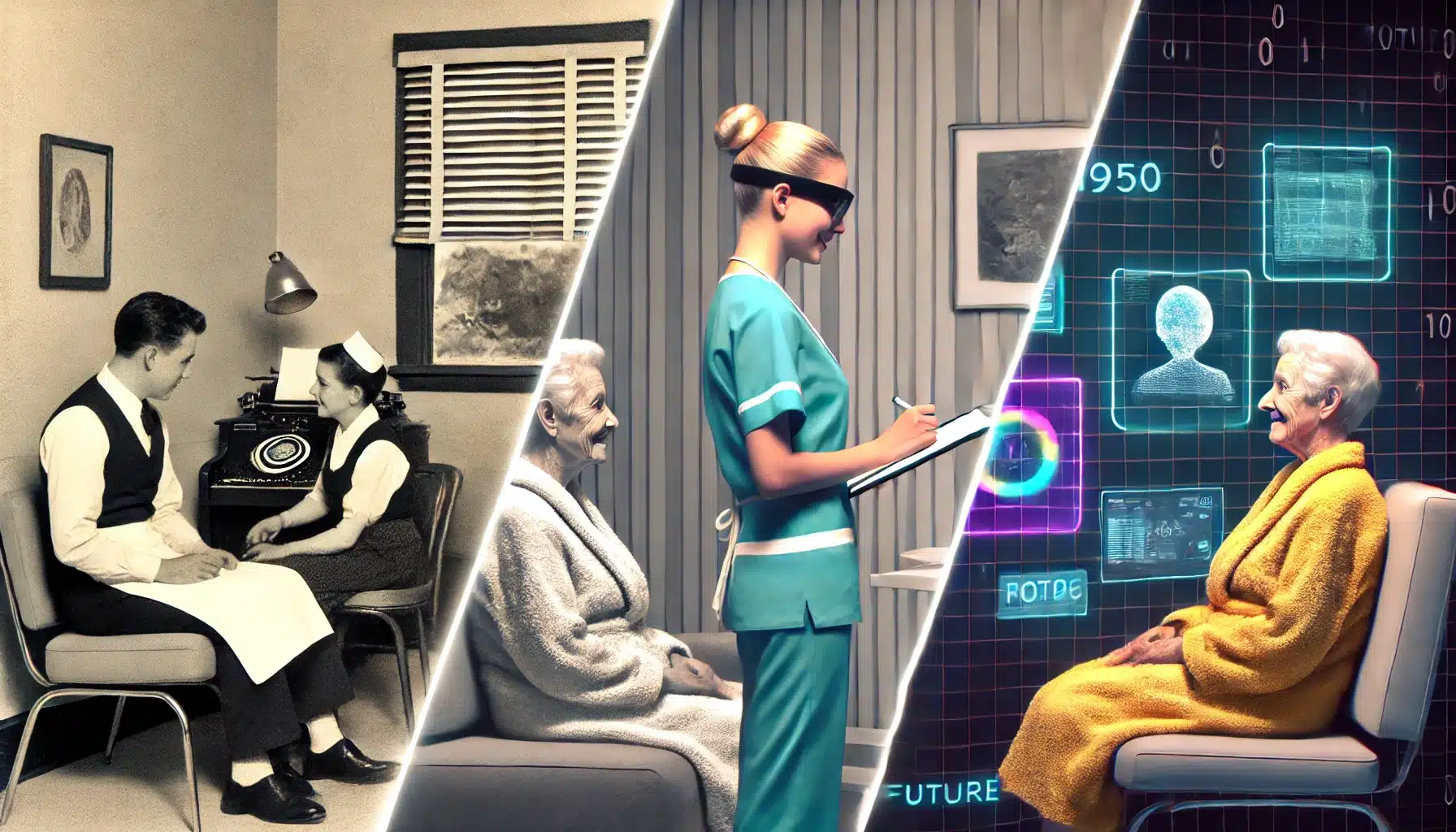Today’s world is aging fast, and with it, the need is growing for social workers who help vulnerable people. Technology, especially Artificial Intelligence (AI)—which is when computers are taught to do tasks we think of as requiring human intelligence—holds promise in supporting social work. Imagine AI tools helping social workers handle big workloads, managing case details efficiently without losing the personal touch. In this article, we’ll take a journey from the early days of social work to today’s challenges and explore how AI could shape its future for the better.
Why Use AI in Social Work?
Social work is a critical profession that aims to improve lives, yet the need is often much greater than the number of available social workers. AI tools could help lighten their load by managing time-consuming tasks, analyzing cases, and even personalizing support. For example, AI-driven assistants could track client histories, flag needs, and help social workers focus on one-on-one interactions rather than being tied up in administrative work.
A Look Back: The Role of Social Workers
Social work as a profession developed to support individuals and families in times of need. These professionals help vulnerable groups—from children and families to the elderly—improve their quality of life. Over time, social work has become an essential part of communities, though it has often relied on traditional methods. Social workers today are facing a new challenge: as populations age, the need for social support is growing fast, and there aren’t enough social workers to keep up.

Today’s Challenges: An Overwhelmed Profession
Social workers today are in high demand, especially with the growing elderly population. However, the tools available to social workers have often lagged behind, relying on limited technology. This lack of modern technology is partly due to budget constraints and the challenge of adapting social work to systems that automate routine tasks.
A recent study, “Automating Social Assistance,” sheds light on how AI is slowly entering this field. The article examines the use of Robotic Process Automation (RPA)—a type of technology that automates simple, rule-based tasks—in Sweden’s social services. This experiment in automation applied RPA to straightforward tasks, such as entering data and suggesting basic benefit amounts, but it couldn’t handle more complex cases that need human understanding. The RPA system also relied on strict rules, so if a client’s case didn’t fit the template, it required manual intervention.
The experiment showed that while RPA could handle repetitive tasks, it’s not the same as true AI, which can learn, adapt, and make nuanced decisions. Unlike RPA’s rule-based logic, newer AI technologies can interpret context and even predict needs.
Large Language Models (LLMs), such as ChatGPT, are examples of advanced AI that can understand and generate human language, making them well-suited for more complex social work tasks. Intuition Robotics, For instance, they developed ElliQ, a companion robot for seniors that uses Natural Language Processing (NLP)—a type of AI that helps computers understand and respond to human language—and advanced language models (LLMs) to engage in conversations, remember personal details, and respond to mood changes. This level of adaptability is something that rule-based RPA systems alone could never achieve.

The Future: Transforming Social Work with AI and LLMs
With the development of LLMs—advanced AI that can understand and generate human-like responses—the future of social work technology looks promising. Tools like Retrieval-Augmented Generation (RAG), which combines AI’s conversational abilities with up-to-date, personalized information retrieval, could give social workers real-time insights. Imagine an AI that not only knows a client’s history but can retrieve new resources or services they might need, all within seconds.
A great example of this forward-thinking approach is MagicNotes, a system being used in the UK that assists social workers by documenting case notes, summarizing client histories, and providing real-time insights. MagicNotes uses AI in social work that learns from past cases and interprets complex situations to offer meaningful, actionable insights. This type of AI doesn’t replace social workers; instead, it acts as an assistant, helping them make quicker, better-informed decisions.
Here at Happy Seniors, we’re taking these advancements a step further with our Nightingale Platform. Nightingale is an AI-powered case management system created for senior care. Using LLMs, Nightingale assists social workers and caregivers by learning each client’s specific needs and adjusting over time. Nightingale can handle everything from coordinating caregiver schedules to helping seniors navigate complex healthcare options. With a user-friendly interface and 24/7 availability, Nightingale is more than just an assistant; it’s a trusted partner for social workers and families alike.

What’s Next?
Integrating AI in social work will require careful planning. Privacy and data security are paramount, and AI models need to avoid any biases in their suggestions. Nightingale’s AI in social work uses privacy-preserving technology to ensure sensitive data remains secure. It also employs ongoing feedback from users to continually improve its suggestions and interactions.
Combining human compassion with AI-driven assistance could reshape social work as we know it. Social workers will still be the heart of the profession, but AI will provide them with the support they need to better serve communities and meet the growing demands of our aging world.
At Happy Seniors, we’re committed to this future. With Nightingale, we aim to equip social workers and caregivers with AI-driven tools that support the compassionate, personalized care that is essential to improving lives.

